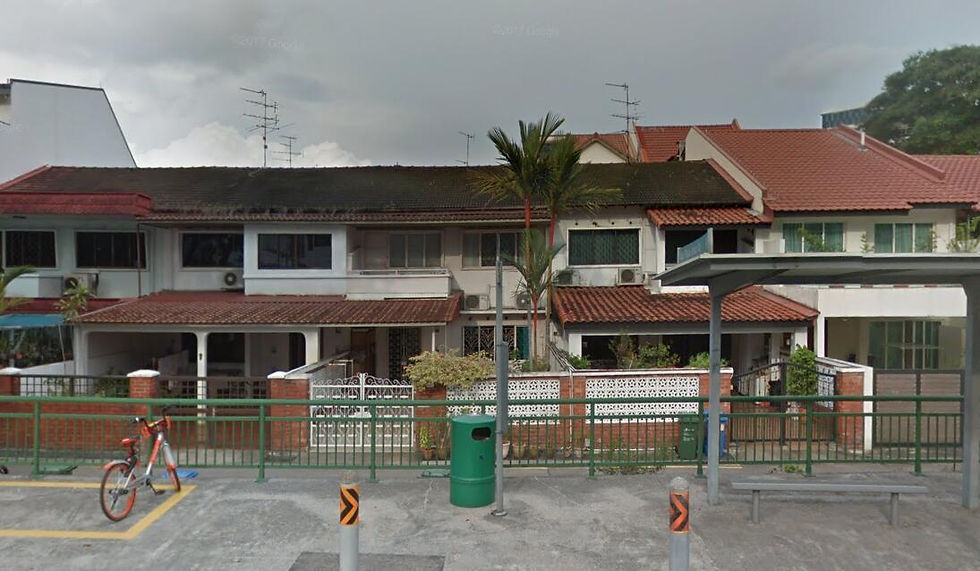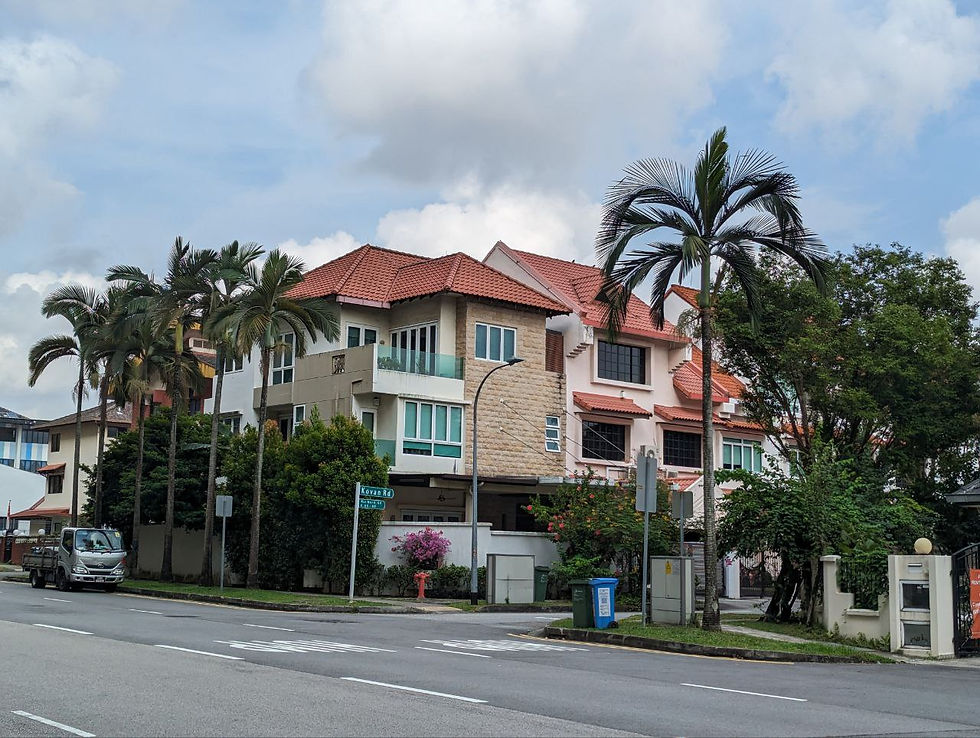True story: How buying a S$380k landed property with 10 years left became a smart move
- propertydecodedsg
- Jan 31, 2024
- 4 min read
In Singapore, many view property as an investment vehicle, often seen in young couples who sell their Build-To-Order (BTO) homes after the 5-year Minimum Occupation Period (MOP) to enter the condominium market with the profits. If you're familiar with our discussions on landed property as an investment tool, this isn't new to you.
That makes this article something of an anomaly, as we’ll be exploring the concept of a home purely for its utilitarian value rather than as an investment. Once you embrace this perspective, you’re well set to delve into today’s dilemma: Would you choose to purchase an HDB flat or a landed property if you had a million dollars?
Now, this might sound like clickbait, but it's not. In fact, it's entirely possible to acquire a landed property in Singapore for less than a million dollars without resorting to time travel back to five years ago. We're here to inform you that such landed properties do exist, and they possess the following characteristics:
They are leasehold.
They have a remaining lease of at most 25 years.
You cannot obtain a loan or utilise your CPF funds to purchase such a property.
From a logical standpoint, there appears to be little incentive to opt for the landed property over the HDB flat. With a million dollars in the HDB market, you could likely secure a spacious property with a lease of at least 60 to 70 years remaining. Moreover, you would have the option to finance it through a loan, your CPF funds, and government grants. But those who outperform the market often make decisions that may not appear logical at first glance. Mr A is one such buyer.
Case Study: S$380,000 landed property
Upon digging into the records, Raama unearthed Mr. A's intriguing property purchase in November 2021 for a cool S$380,000. Perhaps he flipped his former landed property for a profit to enjoy the lifestyle for a while longer – who can say for sure?
Now, here's where it gets interesting. Considering the 3-year Seller's Stamp Duty (SSD), Mr. A could potentially stage his exit from the market in November 2023, with a mere 10 years left on the lease. And would you believe it? The houses on the same street are now commanding prices of $600,000 to S$700,000.

In addition to reaping the rewards of straight-line depreciation, Mr. A stands to turn a tidy profit if he were to offload the remaining lease and cash out today. And let’s not forget the cherry on top: By going all-in with cash, Mr A. dodged the rent hikes while others were fretting over the spike from S$5,000 to S$7,500 in the blink of an eye. Who needs landlord woes when you’ve got the upper hand?
This goes to show that the perceived value of leasehold properties is on the rise, with the remaining lease now commanding more value than before. The past three years have been kind to both property owners and prospective buyers, fueledd by the escalating prices of HDB flats. This surge in value might prompt some individuals to consider a landed property, seeing it as a worthwhile venture for an aspirational lifestyle.
Would we do the same?
Imagine stumbling upon a landed property listed at S$500,000 on PropertyGuru, with just 20 years remaining on the lease. This translates to a depreciation cost of approximately S$2,000 per month – a figure comparable to that of a secondhand Tesla on Sgcarmart. (And let's not forget, a property offers enjoyment to more people compared to a car.) Would you dare to make the unconventional choice of investing in this landed property at such a price?
Personally, it’s a no for me as I’m at a stage in life where I'm juggling between investment considerations and practical utility, and this decision doesn't align with my perspective. However, for Jackie, it's a green light if the financial numbers stack up from an investment angle. Moreover, he's confident that a semi-detached property can fetch rental income of S$7,000 to S$8,000 per month effortlessly. Even factoring in depreciation, there's still a surplus to be gained through rental yields.

Raama adds that financing a home solely with cash isn't as prohibitive as it may seem, citing historical instances of homes being financed through trusts. This approach lowers the barrier to entry and reduces the required investment amount. So, if you have sufficient funds in the bank and the opportunity presents itself, why not take the plunge?
Who should buy such a home?
In our professional experience, we've encountered clients who defy conventional wisdom and opt for the less conventional path. In this specific scenario, potential buyers may include:
Landed property owners seeking to downsize.
Couples intending to retire abroad and uninterested in expanding their real estate holdings in Singapore.
Individuals currently renting a landed property, viewing it more as an expense than an investment.
Risk takers who are confident in their ability to generate rental income with minimal risk exposure.
Buyers who value land size over everything else.

Where can you find them?
You can find such properties nestled in areas like Jalan Asas, Fuyong Estate, Yio Chu Kang Road, Bedok Road, and Jalan Chempaka Kuning. Here, we stumbled upon a landed property with 11 years left on the lease priced at S$600,000. A comparable alternative might be an HDB flat in Bedok boasting around 60 years on the lease.
The age-old dilemma presents itself: Opt for a landed property and face ongoing expenses, or choose a flat with potential resale value. However, as demonstrated by the earlier case study of Mr. A, this dilemma isn't necessarily accurate.
In Singapore, even with a limited lease, there are individuals who approach things from a different angle. While many deem landed property unattainable due to high entry costs, for those already renting, the question arises: Are you willing to pay a large amount of cash upfront and take control of your monthly expenses once and for all?
Considering the trajectory of landed property values in Singapore, you might be pleasantly surprised five years down the line that this investment is far from being a mere expense.



Comments